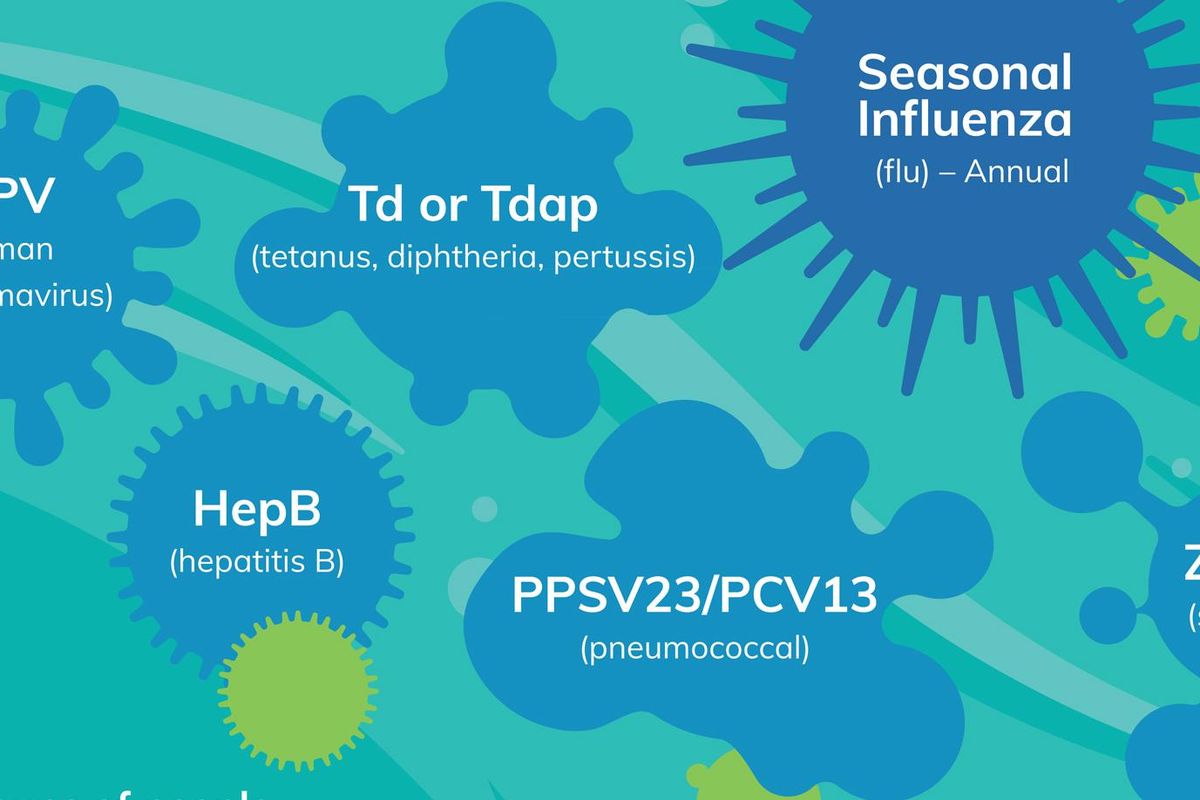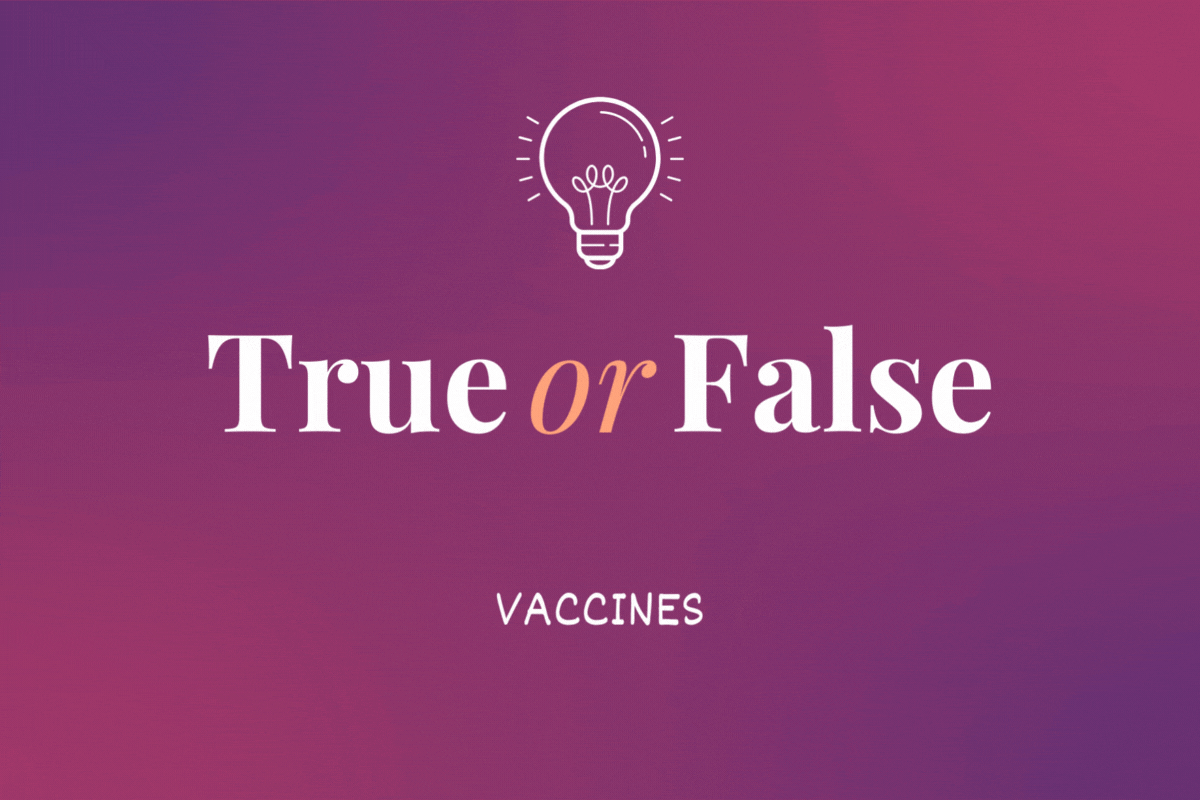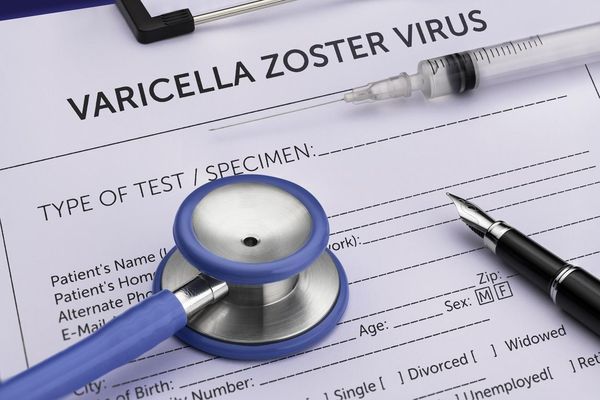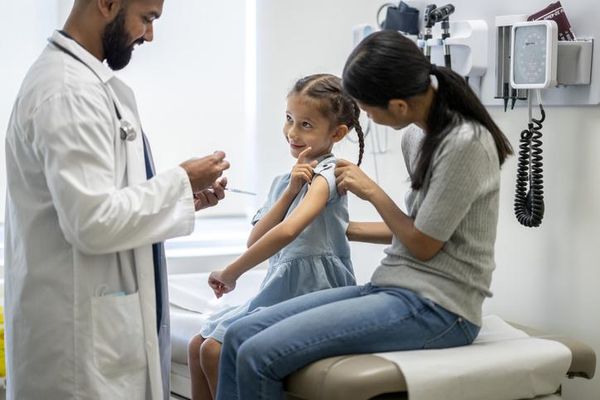For a full list of vaccines recommended by the Centers for Disease Control and Prevention, click here.
Reviewed by Sabra L. Klein, Ph.D.
Kids aren’t the only ones who need shots. Vaccines for adults can help prevent infectious diseases or boost the effectiveness of childhood vaccines that wear off over time.
What vaccines do adults need?
The Centers for Disease Control and Prevention (CDC) recommends that adults get certain vaccines at certain life stages. Talk to your healthcare provider (HCP) about which ones are right for you.
Common Vaccines for Adults
Even if you’ve had some of these vaccines previously, check with your HCP to see if it’s time for a booster.
Seasonal influenza (flu) – Annual |
Td or Tdap (tetanus, diphtheria, pertussis) |
HPV (human papillomavirus) |
HepB (hepatitis B) |
Zoster (shingles) |
PPSV23 / PCV13 (pneumococcal) |
Some groups of people may need extra or different vaccines. These include:
- Pregnant women
- Adults with health conditions like heart disease, diabetes and liver disease
- Adults with a compromised immune system
- Healthcare workers
- International travelers
- Refugees and immigrants to the United States
If you’re in one of these groups, check with a healthcare provider about which vaccines you may need. The CDC offers an Adult Vaccine Assessment Tool that createss a list of recommended vaccines based on your personal circumstances.
Why do some vaccines need more than one dose?
For some vaccines, more than one dose is needed to create immunity from an illness.
It’s crucial to get all the doses of a vaccine to make sure you’re protected and to prevent spreading the illness-causing pathogen (bacteria or virus) or allowing it to mutate (change) and become harder to control.
SINGLE DOSE = PARTIAL IMMUNITY
- Infection can still be transmitted, meaning you can still get infected and pass it to others
- Pathogen may mutate
ALL DOSES = FULL IMMUNITY
- Infection can no longer be transmitted
- Pathogen can’t mutate
Why do some vaccines need boosters?
The immunity provided by some vaccines wears off over time, so a booster shot is required to bring immunity back up. The Tdap vaccine, for example, requires a booster every 10 years to maintain immunity.
Did you know?
Vaccines can’t make you sick. Some people mistakenly believe that a vaccine can infect you with the illness it’s meant to prevent. But symptoms after getting the vaccine, such as soreness or fatigue don’t mean you’re getting sick — they mean your immune system is responding to the vaccine. In other words, it’s working!
Did you know?
Women may be more likely to experience side effects from vaccines.
Did you know?
Only about 1 in 5 adults is up to date on their vaccines.
Wondering if you should postpone vaccines until after the COVID-19 pandemic? Don’t.
It’s important to stick to the recommended adult vaccine schedule. Not only are vaccines vital to your personal health, but a bad flu season or outbreak of other diseases could overwhelm an already burdened healthcare system during the pandemic.
Keeping up to date with your vaccines doesn’t just benefit you — it benefits your family, friends and your community!
This resource was created with support from Merck and Pfizer.








